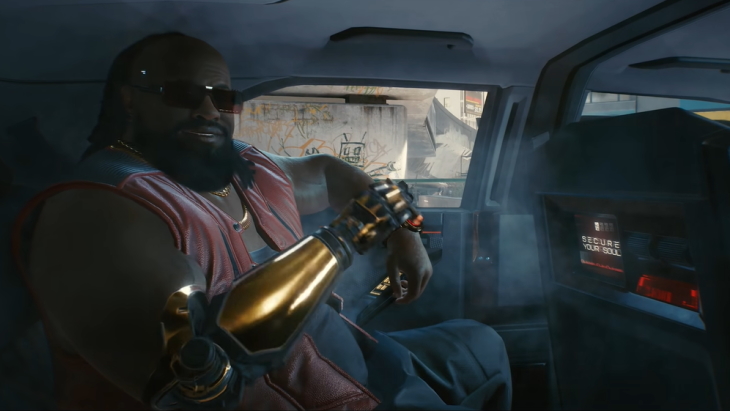IbizaPocholo
NeoGAFs Kent Brockman

Cyberpunk 2077 Lead Quest Designer Says No Changes Based on George Floyd Aftermath; Game is “Not a Political Statement, [or] a Political Thesis”
During an interview, CD Projekt RED Lead Quest Designer Pawel Sasko has stated that Cyberpunk 2077 will not be changing any of its content based on the protests and subsequent riots across the US over the death of George Floyd.
During an interview, CD Projekt RED Lead Quest Designer Pawel Sasko has stated that Cyberpunk 2077 will not be changing any of its content based on the protests and subsequent riots across the US over the death of George Floyd.
Now Polish gaming news website Spider's Web has interviewed Sasko about Cyberpunk 2077. Therein it was revealed that the game's length was designed after feedback from The Witcher 3: Wild Hunt.
However this meant doing the opposite of that game; providing non-linear quests, and using a "token system" to dictate when new quests would appear to the player. Events in side-quests can even alter the main storyline, or earn a new epilogue without completing the main story.
Players will also be able to complete the game without a single kill if they desire, though some fights will be inevitable. To prevent players from having a "bad time" players will not be given the opportunity to kill NPCs important to the plot; though other times it will be clearly telegraphed when players can resort to violence.
"It will be best if we look at The Witcher 3. We adopted a similar methodology as we used to work on Cyberpunk – in the case of the most important characters for the player's characters – there is no moment for them to become our adversary or die for some reason. However, our philosophy is that if a player feels that he should naturally be able to perform an action, we try to make it possible for him. I think the perfect example is All Foods Factory and this quest where you meet Royce and Dum Duma – there we try to telegraph the player that at almost any moment he can reach for a weapon and go on the combat path, if only he wants to, and finish this quest in this form.
We approach it from the plot side – if as a player you feel that you would like to perform this particular action, it is usually possible. You know – when you meet Jackie who eats ramen and is your friend, and his intentions are purely social and he is a character who supports you, the game obviously does not allow you to attack him, because it does not make much sense and it would not lead to that. That the game would become more interesting or fun.
This is one of our history design principles. We always try to design the game so that the choices the player can make always lead to the game being fun and interesting. As a player, I am potentially unable to make choices that will make me have a bad time. Killing important, romance, story-related characters usually leads to this and I, as a player, could make my game less fun than other players I see, for example on YouTube or a journalist who tells what his perspective was, and I played a game that was uninteresting. We try to build the game so that this philosophy is always visible."
The origin players choose will also dictate some elements of the plot (such as how they meet Jackie), grant new quests and dialogue options, and different "paths" the player can choose towards the end of the story. Certain choices can even change a player's "lifepath," allowing them to finish the game as an entirely different character to their origin.
Sasko was then asked about if any of the game's content would be influenced by recent events; including the Black Lives Matter movement. Sasko stated the game was almost done, and changing the story would be impossible.
Sakso emphasizes most importantly the game is a piece of entertainment and art. While "elements in the game" touch on certain themes related to Black Lives Matter, "the most important thing is that our game is a closed work and it is not a political statement, a political thesis."
"Have you had to change any content in the game, including in quests, influenced by recent events in the US and the Black Lives Matter movement?"
"The important point is that we already have the game recorded at this stage, actually for a long time. This is the last stage in which we do not change anything in the story we are telling, add nothing or remove anything. These events, as you yourself have noticed, took place very recently.
The second point is, for us, Cyberpunk and The Witcher are games that show our philosophy as studies. The game we are working on is a medium to a large extent entertainment, but for us it is also an art – a work that shows our vision. It is difficult for me to imagine the events that would have to happen for us to suddenly find that we are changing or moving something in order not to touch any specific elements.
Anyway, I think you saw elements in the game that touch it, so you could find out for yourself. For me, the most important thing is that our game is a closed work and it is not a political statement, a political thesis."



